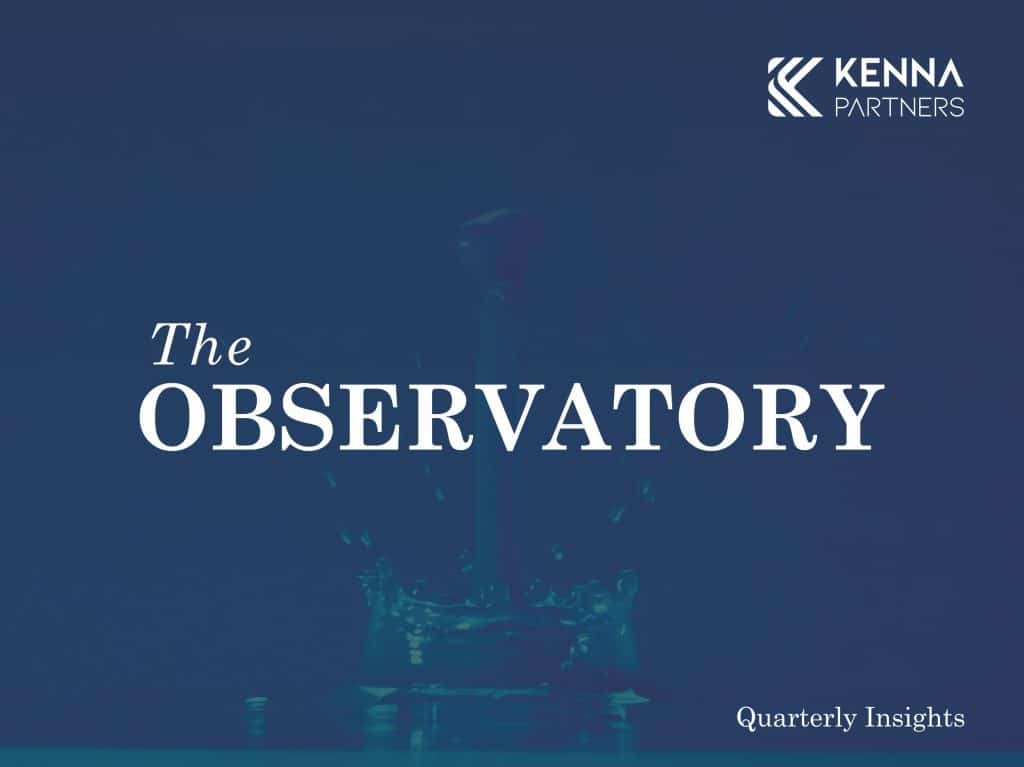
This edition of the Kenna Partners’ Observatory covers a wide category of updates spanning taxation, art, telecommunications, corporate and energy industries. The Nigerian Tax Bill, the Foreign Exchange Code 2024, the Kenna Partners’ Energy Dialogue, and the exclusive book reading of Creating Art: Authenticity and Ownership in the Visual Art, are some of the major updates are covered in this publication.
The Energy Practice Unit of the Kenna Partners hosted its inaugural Energy Dialogue on October 9, 2024, on the theme “Divestments, Reinvestments, Deep-Offshore Development, and the Future of Oil and Gas in Nigeria”. Held at Victoria Island, Lagos, the event attracted a distinguished audience of C-level executives and key stakeholders from the oil and gas sector. The gathering was a vital forum for industry leaders to engage in substantive discussions on the evolving landscape of Nigeria’s energy industry.
The event featured insightful speeches from esteemed speakers, including Engineer Kamoru Oladimeji Busari, FNSE, Director of Upstream at the Ministry of Petroleum Resources of Nigeria, who represented the Honourable Minister of Petroleum Resources, Mr Heineken Lokpobiri; Mr Victor Diseiye Otobo, Head of the National Oil and Gas Excellence Centre, representing the Chief Executive Officer of the Nigerian Upstream Petroleum Regulatory Commission (NUPRC), Mr Gbenga Komolafe; and a keynote address by Professor Fabian Ajogwu, OFR, SAN, Senior Partner at Kenna Partners.
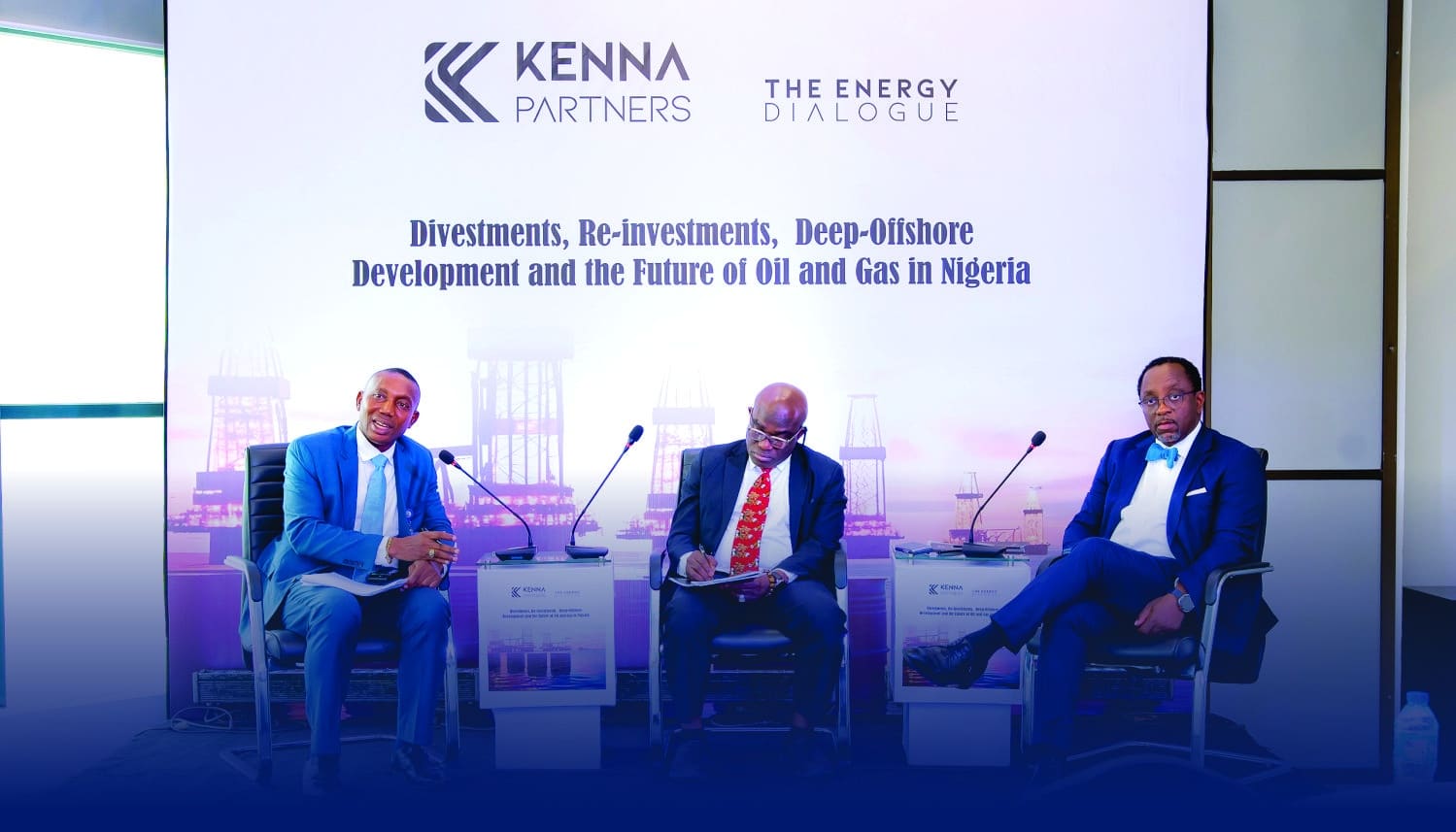
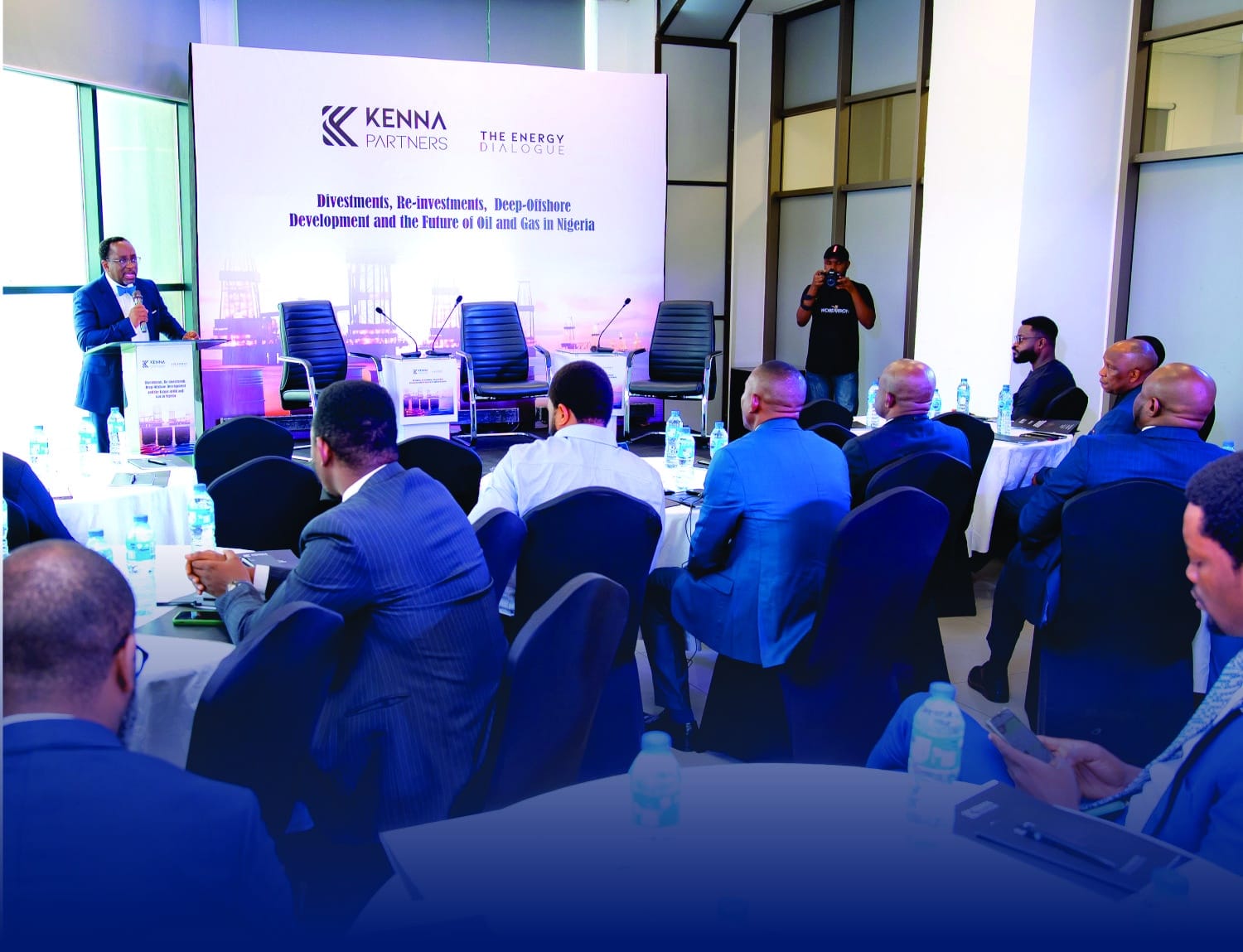
The dialogue aimed to address significant trends in the sector, including the dynamics of divestments and reinvestments, and the strategic importance of deep-offshore development. Participants explored the challenges and opportunities ahead, particularly within the context of Nigeria’s economic framework and global energy demands. The exchange of insights and perspectives proved invaluable, fostering collaboration among executives and stakeholders, enabling them to align their strategies with the anticipated trajectory of the oil and gas sector in Nigeria.
This inaugural event not only highlighted Kenna Partners’ commitment to facilitating high-level discussions in the energy sector but also underscored the importance of collective efforts in navigating the complexities of oil and gas investments. By bringing together prominent figures in the industry, the Energy Dialogue provided a unique opportunity for participants to share best practices, discuss innovative solutions, and chart a sustainable path toward the future of oil and gas in Nigeria.
As part of his commitment to enriching the conversations on art collection and creation, Kenna Partners’ Senior Partner, Professor Fabian Ajogwu, OFR SAN, and Dr Jess Castellote hosted an exclusive reading of their latest collaborative book, “Creating Art: Authenticity and Ownership in the Visual Art” at MILIKI, Victoria Island, Lagos. This book, the second instalment in their art series following the successful “Collecting Art: A Handbook”.
Moderated by Ms. Nabilah Usman, the event featured engaging discussions on art ownership, authenticity, originality and the evolving landscape of digital art. Attendees, including art enthusiasts and industry professionals, had the opportunity to engage with the authors on insightful discussions on the complexities of authenticity, artists’ rights, and the implications of digital advancements in the art world.
Participants and Senior Executives at the reading to discuss themes presented in the book from right to left: Mr. Segun Ogunsanya, Chairman, Nigerian Sovereign Investment Authority; Mr. Roger Brown, CEO, Seplat; Mrs. Dudun Peterside, CEO, Narita Learning; Professor Fabian Ajogwu, OFR, SAN, Co-Author; Mrs. Ngozi Edozien, Director, Guinness Nig. Plc; Mr. Atedo Peterside CON, Founder, Stanbic IBTC Bank; Mrs. Dikko; Mr. Ibrahim Dikko, CEO, Hitel Comms and Mr. Karam Chakhtoura, CEO, IPT Technologies.
Professor Ajogwu OFR, SAN emphasised that the book addresses pertinent questions regarding the rights of artists and modifications of purchased artworks, stating, “In ‘Creating Art,’ we were looking at the rights of the visual artist. Can we buy a piece of art and change its colours just because we prefer them? These are things we discussed as affecting the rights of visual artists and artists’ rights.”
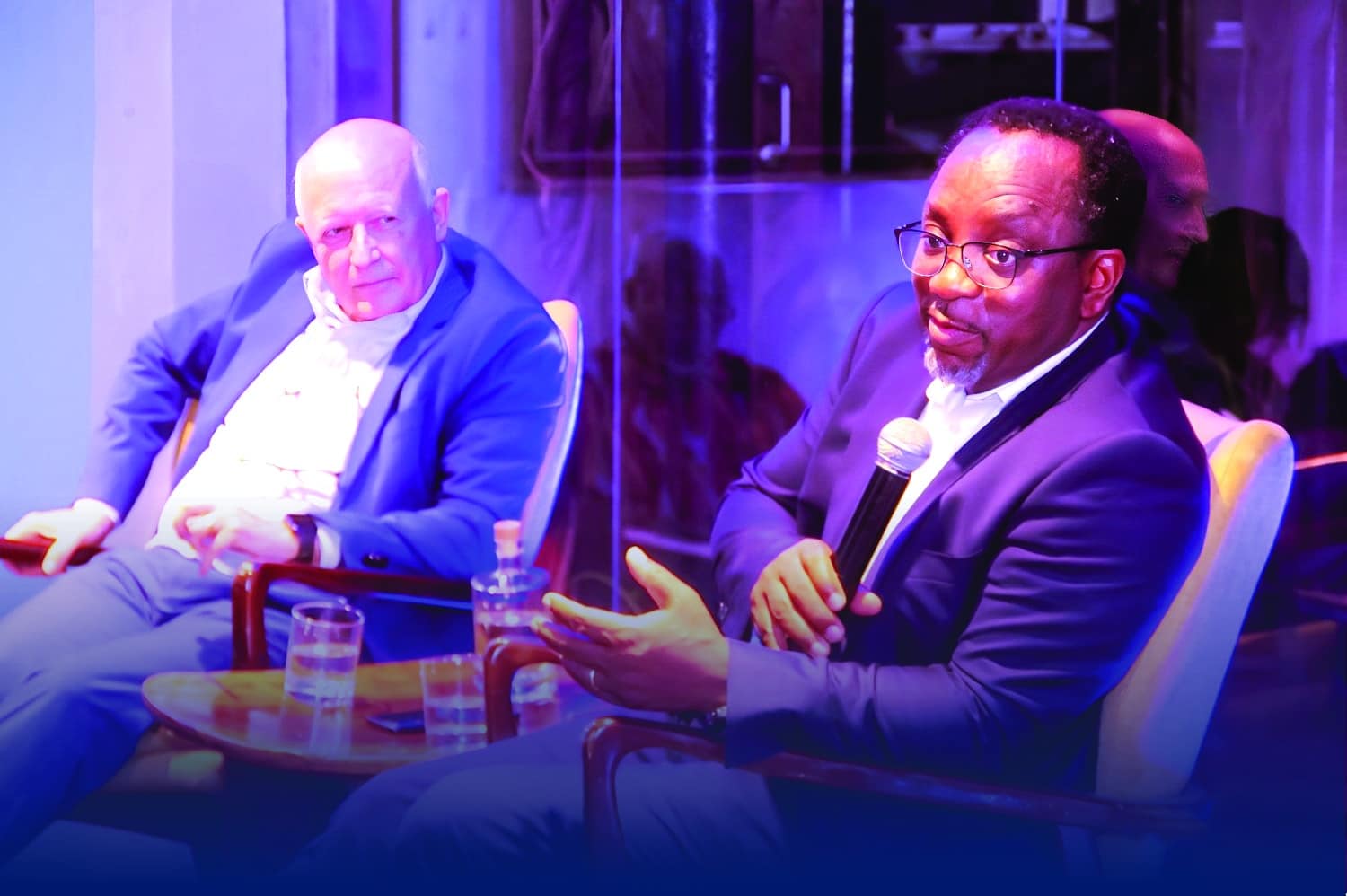
Sharing his motivations for co-authoring this work, Dr Castellote stated, “We wanted to address not just our disagreements about what art is, but to provide a valuable resource for both collectors and artists.” He noted that this second book, “Creating Art” focuses on guiding artists through legal and contractual matters, distinguishing it from the previous publication aimed at helping collectors refine their practices.
Emerging trends such as digital rights and the influence of artificial intelligence on art creation were key topics of discussion by the authors. Professor Ajogwu OFR, SAN stated, “Art is going to go beyond what you see hanging on your wall, to digital rights, to dealing with AI, to unitizing ownership, to dispute resolution when there are art disputes of that nature.” He also highlighted the indispensable contributions of institutions such as the Yemisi Shyllon Museum of Art (YSMA) at Pan Atlantic University and the Society for Art Collection (SARTCOL), emphasising their key roles in preserving and promoting the rich narratives of African art.
Renowned art curator, Sandra Obiago, underscored the importance of the book for stakeholders across the art ecosystem, stating, “The issue of authenticity and ownership is something that we grapple with on a daily basis. It’s a very important book for artists and collectors because we’re dealing with authenticity all the time and ownership as we look at a work that we want to acquire.”
Ejike Egbuagu, Founder of the 1952 Africa Art Foundation, brought forth the perspective of young artists, expressing the need for targeted discussions that would equip them with knowledge about originality and value in a competitive market. He stressed that understanding the dynamics of the art market is crucial for emerging talents within the art community.
The event attracted distinguished guests including Mr Atedo Peterside and Mrs Dudun Peterside, Mr Segun Ogunsanya (Chair of NSIA), Mr Roger Brown (CEO of Seplat Energy PLC), Professor Enase Okonedo (Vice Chancellor of Pan Atlantic University), Professor Juan Elegido (former Vice Chancellor of Pan Atlantic University), Mr Nero Asibelua, Ms Ngozi Edozien, both board members of the Society of Art Collection (SARTCOL), Mr Kailesh Patel and Mrs Anita Patel, Mrs Folashade Alli SAN, Mrs Nkemdilim Uwaje-Begho, Dr Hala Daggash and Mr Muhammad Daggash, and other distinguished individuals from the art, business, and academic communities, all united by their shared interest in the arts.
In August 2024, the Nigerian Communications Commission (NCC), in accordance with the Nigerian Communications (Quality of Service) Regulations, 2024, unveiled the Quality-of-Service Rules (“The Rules”). These Rules are intended to elevate performance standards for telecommunication services, including voice and data communications, across Nigeria. By addressing the challenges posed by emerging technologies and evolving operational dynamics, the Rules establish a comprehensive framework for the effective implementation, oversight, and management of telecommunication services, with the ultimate goal of ensuring improved service quality and consumer satisfaction.
A key component of the new rules is the establishment of ‘minimum service quality standards’, which telecom providers must meet in order to ensure consumer satisfaction. The rules define specific ‘Key Performance Indicators (KPIs)’ for various aspects of service delivery, including service reliability, fault repair times, and account-related complaints. For example, disconnection complaints must remain below 0.002% of customers, and faults should be repaired within two working days. The rules also set performance benchmarks for internet services, mandating that service disruptions be restored within two hours, unless the disconnection is legally justified.
The rules also prioritize reporting areas into three levels—Priority 1, Priority 2, and Priority 3—based on their population and commercial significance. High-priority areas like Lagos, Abuja, and Kano require telecom providers to meet all KPIs, while moderate- and low-priority regions have slightly more lenient requirements. For instance, in Priority 2 areas, service providers must meet at least 80% of the KPIs, and in Priority 3 areas, 70%. Providers are required to submit data on service quality at the cell level for each area, and failure to meet KPIs over a 90-day period can lead to regulatory penalties.
Ultimately, the Quality-of-Service Rules are designed to improve service delivery, boost consumer trust, and ensure that the telecommunications sector operates at a high standard. By clearly outlining performance expectations and ensuring rigorous monitoring through KPIs and priority-based reporting, the NCC aims to enhance the overall quality of telecommunications in Nigeria, bringing the country’s practices in line with global standards. These measures should encourage providers to continuously improve their services while maintaining transparency and accountability in the industry.
This paper is authored by Kenna Partners’ Associate, Elizabeth Aghaulor. For further details and the complete paper, please click the link: https://kennapartners.com/highlights-of-the-nigerian-communications-commission-quality-of-business-rules-2024/
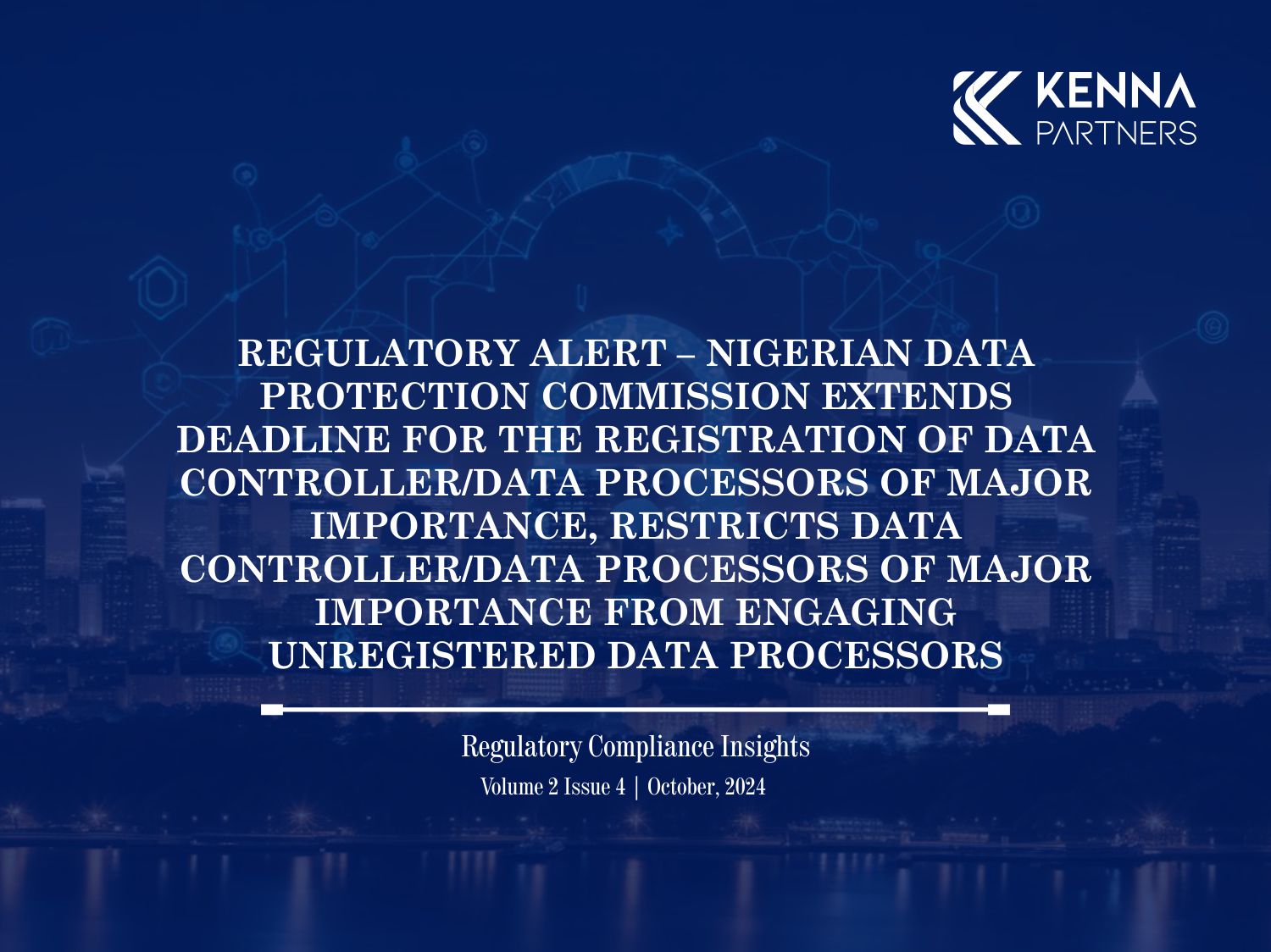
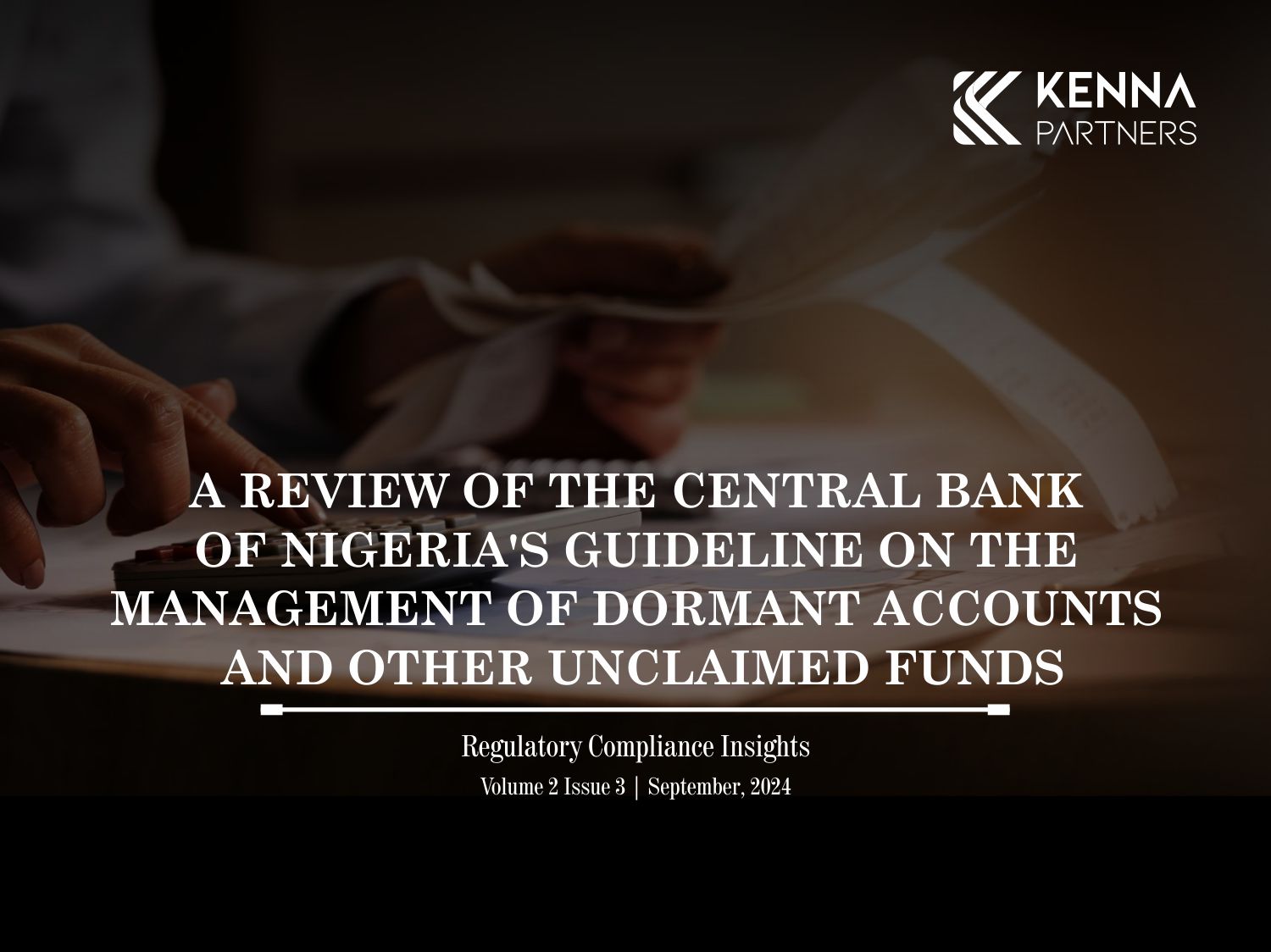
On July 19, 2024, the Central Bank of Nigeria (CBN) issued the revised guideline on the management of Dormant Accounts and other Unclaimed Funds. This

On May 13, 2024, the Nigerian Upstream Petroleum Regulatory Commission (NUPRC) announced the commencement of the 2024 Nigeria Petroleum Licensing Round and the resumption of
